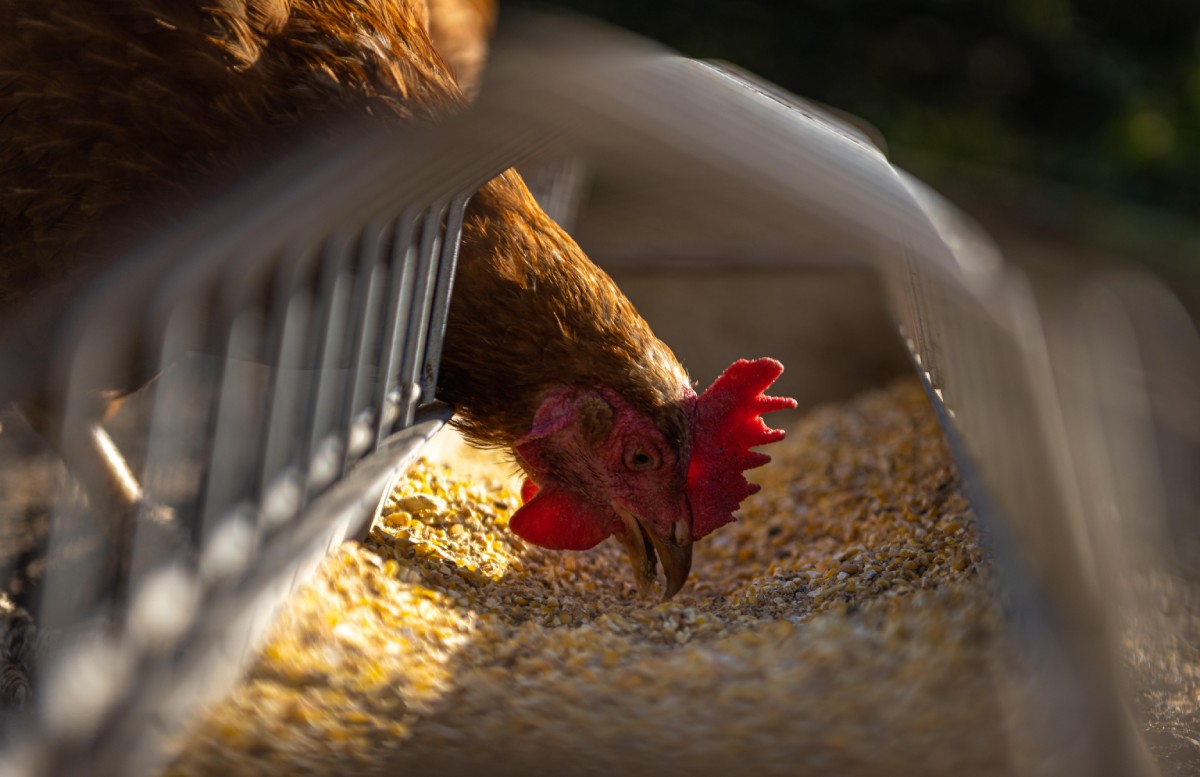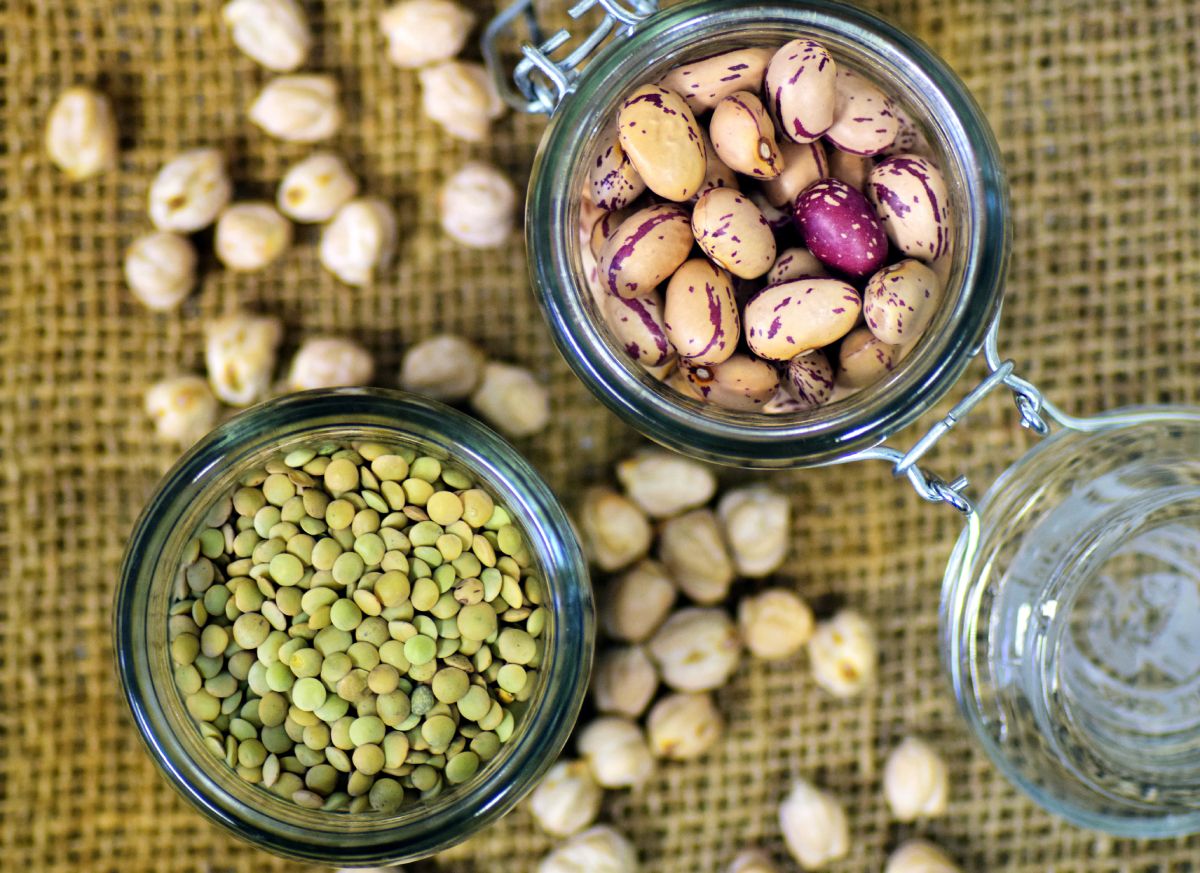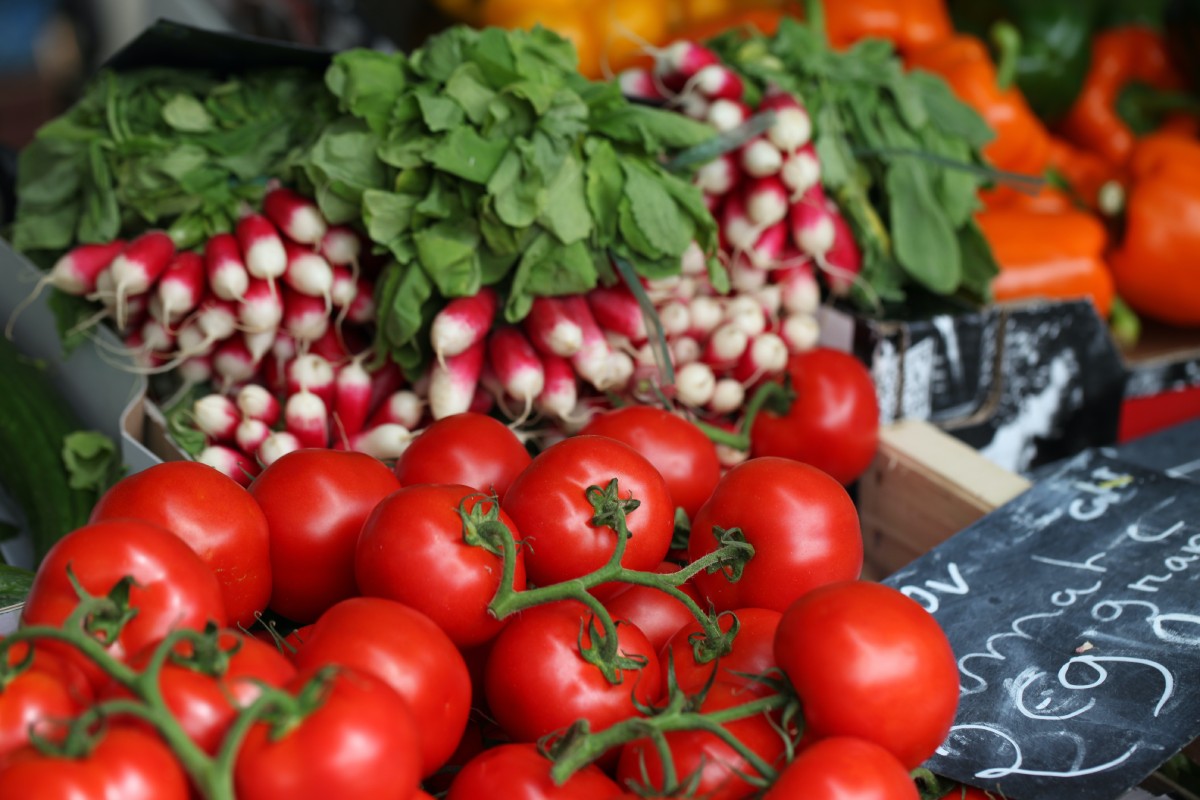Introduction to the Concept of Food Choices and the Environment
Our food choices, from what we eat to how it’s produced, profoundly impact the environment. Whether we realize it or not, every meal we consume directly links us to a global chain of events affecting our planet. This section aims to understand the concept of food choices, their environmental footprint, and the importance of sustainable eating.
Defining Food Choices
Food choices refer to our daily decisions regarding what we eat. Numerous factors, including taste preferences, nutritional needs, cultural background, and personal beliefs, often influence these choices. However, an often-overlooked aspect is the environmental impact of these decisions.
Every ingredient in our meals carries an environmental cost associated with production, processing, transportation, and disposal. This cost can vary greatly depending on the type of food and how it is produced. For instance, the environmental cost of producing meat, particularly red meat, is significantly higher than that of plant-based foods due to the greater resource inputs and emissions involved.
The Environmental Footprint of Our Diets
Our diets’ environmental footprint measures the total environmental impact associated with the production, processing, and disposal of the food we eat. It covers various aspects, including:
- Greenhouse gas emissions: The food production process releases significant amounts of greenhouse gases, particularly methane and nitrous oxide, which are much more potent than carbon dioxide. These emissions primarily come from livestock farming and rice cultivation.
- Land use: Large amounts of land are required for raising animals and growing feed crops. This leads to deforestation, habitat destruction, and biodiversity loss.
- Water use: Agriculture is one of the largest consumers of freshwater resources, with irrigation for crops and water for livestock taking a significant share.
- Energy use: Energy is extensively used in various stages of food production, from powering machinery and transport to processing and refrigeration.
- Waste generation: Food production and consumption generate large amounts of waste, including food and packaging waste.
Importance of Sustainable Eating
Sustainable eating involves making food choices that are good for our health and the health of our planet. It emphasizes choosing foods that are produced, processed, and distributed in ways that protect our environment, contribute to economic prosperity, and promote social equity. Here are some key principles of sustainable eating:
- Favor plant-based foods over animal-based foods: Plant-based foods generally require fewer resources and emit fewer greenhouse gases than animal-based foods.
- Choose organic and locally sourced foods when possible: These foods tend to have a lower environmental impact due to more sustainable farming practices and reduced transportation needs.
- Reduce food waste: Around a third of all food produced worldwide ends up as waste. Reducing food waste can significantly lower the environmental impact of our diets.
- Eat seasonally: Seasonal foods are often grown locally and don’t require long-distance transportation, reducing their carbon footprint.
Adopting sustainable eating habits is a powerful way for individuals to reduce their environmental footprint. In the following sections, we will delve deeper into how our food choices impact the environment and how adopting a plant-based diet can significantly promote more sustainable eating.
The Environmental Impact of Conventional Food Production
Conventional food production, especially involving livestock, significantly contributes to environmental degradation. This sector is responsible for many greenhouse gas emissions and heavy usage of land and water resources. Overfishing is another serious concern associated with traditional food production. In this section, we’ll dive into the environmental impacts of these activities.

Greenhouse Gas Emissions from Livestock
Livestock farming is a major contributor to greenhouse gas emissions, accounting for nearly 14.5% of all anthropogenic emissions, according to the United Nations Food and Agriculture Organization (FAO). The gases are primarily methane, a potent greenhouse gas released through enteric fermentation in ruminants such as cows, and nitrous oxide, a gas emitted from manure management.
Several factors contribute to the high emissions from livestock farming:
- Enteric fermentation: This is a natural part of the digestive process for ruminant animals, during which methane is produced and released.
- Manure management: Animal waste decomposes and releases methane and nitrous oxide into the atmosphere.
- Feed production: The cultivation of crops for animal feed requires using fertilizers, which release nitrous oxide, a potent greenhouse gas.
Land and Water Usage in Animal Agriculture
Animal agriculture demands extensive land and water, contributing to deforestation and water scarcity.
- Land usage: Livestock farming takes up about 80% of the world’s agricultural land while producing only about 18% of the world’s calories. This land is used for pastures and for growing feed crops. Expanding agricultural land often leads to deforestation, habitat destruction, and biodiversity loss.
- Water usage: Producing animal-based foods typically requires more water than plant-based foods. This is due to the water needed to grow feed crops and provide animal drinking water.
Overfishing and its Environmental Consequences
Overfishing, another aspect of conventional food production, capture fish from the sea at rates too high for species to reproduce and replenish. This practice has serious environmental consequences:
- Decline in fish populations: Overfishing leads to a decrease in fish populations, threatening the balance of marine ecosystems.
- Loss of biodiversity: By selectively targeting specific fish species, overfishing can lead to ocean biodiversity loss.
- Destruction of marine habitats: Fishing techniques like bottom trawling can damage the sea floor and destroy habitats for many marine species.
Conventional food production has significant environmental impacts, making it crucial to explore more sustainable options. A shift towards plant-based diets can reduce these impacts and pave the way for more sustainable food systems.
Benefits of a Plant-Based Diet for the Environment
A significant way to mitigate the environmental impacts of conventional food production is by adopting a plant-based diet. By focusing on consuming fruits, vegetables, grains, legumes, and other plant foods, we can significantly lower greenhouse gas emissions, reduce the usage of land and water resources, and contribute to biodiversity conservation.

Lowering Greenhouse Gas Emissions
Transitioning to a plant-based diet has a substantial effect on reducing greenhouse gas emissions. Here’s why:
- Fewer methane emissions: Plant-based diets eliminate livestock consumption, which is a major contributor to methane emissions, a potent greenhouse gas.
- Less energy-intensive: Plant-based foods are generally less energy-intensive than meat and dairy production, leading to fewer emissions.
- Reduced feed cultivation: A decrease in demand for animal products would also lower the need for feed crop cultivation, which is associated with significant carbon dioxide and nitrous oxide emissions.
Reducing Land and Water Usage
A plant-based diet is more resource-efficient, reducing the demand for land and water:
- Less land required: Growing plants for direct human consumption requires less land than raising animals, as animals need space to graze and land to feed.
- Water savings: Plant-based foods are typically less water-intensive than animal-based ones. For instance, producing a kilogram of beef can use up to 15,000 liters of water. In contrast, a kilogram of wheat only requires between 500 and 4,000 liters.
Biodiversity Conservation
Switching to a plant-based diet can also help conserve biodiversity:
- Reduced habitat destruction: With less demand for land for animal agriculture, we can reduce deforestation and habitat destruction, which threaten wildlife populations.
- Decreased overfishing: As we shift away from animal products, the demand for fish will decrease, helping to alleviate the issue of overfishing and allowing marine ecosystems to recover.
- Less pollution: Plant-based diets lead to less pollution from manure management and fertilizers, promoting healthier ecosystems.
The benefits of adopting a plant-based diet extend beyond health. It’s a powerful step towards mitigating our environmental footprint, contributing to the planet’s well-being, and promoting a more sustainable food system. Embracing this change in our food choices is not only an act of environmental stewardship but also a direct way to create a more sustainable future.
Health Benefits of a Plant-Based Diet
While the environmental benefits of a plant-based diet are compelling, it’s important to note that this dietary choice also carries significant health benefits. A well-planned plant-based diet can prevent and manage chronic diseases, provide nutritional advantages, and increase longevity.

Prevention and Management of Chronic Diseases
Plant-based diets are rich in fiber, antioxidants, and other nutrients that have protective effects against many chronic diseases:
- Heart disease: Numerous studies have shown that plant-based diets, rich in fruits, vegetables, whole grains, and legumes, can reduce the risk of heart disease by lowering cholesterol levels and blood pressure.
- Diabetes: These diets can also help manage and prevent type 2 diabetes by improving insulin sensitivity and reducing blood sugar levels.
- Cancer: A diet abundant in various plant foods provides phytochemicals that have anticancer properties.
Nutritional Advantages of a Plant-Based Diet
Adopting a plant-based diet doesn’t mean missing out on essential nutrients. In fact, you might experience nutritional advantages:
- Fiber: Plant-based diets are rich in dietary fiber, which is beneficial for digestive health, blood sugar regulation, and satiety.
- Antioxidants: Plants are the best source of antioxidants, which fight against oxidative stress in the body, reducing the risk of chronic disease.
- Healthy fats: Plant-based diets emphasize foods like nuts, seeds, avocados, and olive oil, which are sources of monounsaturated and polyunsaturated fats—heart-healthy fats that can improve cholesterol levels and provide essential fatty acids.
The Link Between Plant-Based Diets and Longevity
The longevity of certain populations around the world is often attributed to their plant-centered diets:
- Blue Zones: In regions known as “Blue Zones” where people live exceptionally long lives, diets are predominantly plant-based, rich in legumes, whole grains, vegetables, fruits, and healthy fats.
- Reduced mortality risk: Research has indicated that plant-based diets are associated with a lower risk of all-cause mortality, hinting at their potential to contribute to a longer lifespan.
Going plant-based is more than a dietary choice—it’s a commitment to a healthier lifestyle and a more sustainable world. The benefits to personal health and the planet’s health make it a compelling choice for those seeking to impact their well-being and the environment positively. The potential for disease prevention, nutritional benefits, and longevity are strong reasons to switch to a plant-based diet.
Misconceptions About Plant-Based Diets
Despite the numerous benefits of plant-based diets, a few common misconceptions may deter individuals from adopting this dietary lifestyle. Concerns about nutrient deficiency, doubts about plant-based protein sources, and misconceptions about taste and satisfaction are prevalent. Let’s debunk these myths and shed light on the truths of plant-based eating.

Nutrient Deficiency Concerns
A common concern is that plant-based diets will lead to nutrient deficiencies, but this is largely a myth:
- Vitamin B12: While it’s true that B12 is naturally found in animal products, fortified plant foods, and supplements can easily meet your B12 needs.
- Calcium: Many plant foods, like fortified plant kinds of milk, leafy greens, and tofu, are excellent sources of calcium.
- Iron: Plenty of plant-based iron sources like lentils, chickpeas, and seeds exist. Consuming vitamin C-rich foods with iron-rich foods can enhance iron absorption.
With a well-planned diet and a variety of food, it’s perfectly possible to meet all your nutritional needs on a plant-based diet.
Comparing Protein Sources
There’s a misconception that plant-based diets lack adequate protein. However, a wide variety of plant foods can provide ample protein:
- Legumes and pulses: Foods like lentils, chickpeas, and beans are high in protein and can be easily included in meals.
- Whole grains: Quinoa, brown rice, and oats provide protein and a wealth of other nutrients.
- Nuts and seeds: They are protein-rich and provide healthy fats.
Contrary to popular belief, it’s possible to meet your protein needs without animal products.
Taste and Satisfaction Misconceptions
People often worry that a plant-based diet will be bland or unsatisfying, but this is far from the truth:
- Variety of flavors: Plants provide various flavors, textures, and cuisines. From spicy lentil curries to hearty vegetable stews, the possibilities are endless.
- Fulfilling meals: High-fiber foods like whole grains and legumes are satisfying and keep you feeling full.
- Creative substitutes: There are innovative plant-based substitutes for nearly every animal product, from burgers to cheeses and seafood, offering familiar tastes and textures.
Adopting a plant-based diet doesn’t mean sacrificing taste or satisfaction. With a wide range of flavors and the creative use of plant-based foods, you can enjoy delicious and fulfilling meals while supporting your health and the environment.
Practical Tips for Transitioning to a Plant-Based Diet
Transitioning to a plant-based diet may seem daunting, but it doesn’t have to be. In fact, with the right approach, it can be an enjoyable and rewarding journey. Here, we will explore a few practical strategies to make the shift easier and more sustainable in the long term.

Start with Small Changes
Transitioning to a plant-based diet doesn’t have to be an all-or-nothing affair. Small, incremental changes can lead to substantial progress:
- Gradual Transition: Begin by introducing plant-based meals a few times weekly and gradually increasing their frequency.
- Substitute Favorites: Look for plant-based versions of your favorite dishes. For instance, try a lentil Bolognese instead of a meat-based one.
- Meatless Mondays: This global movement encourages people to eliminate meat one day a week. It’s an easy way to start your plant-based journey.
Every plant-based meal is a step towards a more sustainable and healthier lifestyle.
Focus on Whole Foods and Variety
A healthy plant-based diet is not just about eliminating animal products but also focusing on consuming a wide variety of whole foods:
- Whole Grains: Foods like brown rice, quinoa, and oats are nutrient-dense and should be a staple in your diet.
- Fruits and Vegetables: Aim for a rainbow of fruits and vegetables to ensure you get a wide range of nutrients.
- Legumes and Nuts: These are excellent protein and other important nutrient sources.
Ensuring diversity in your diet is crucial for nutritional adequacy and also makes your meals more interesting and enjoyable.
Experiment with Plant-Based Recipes
Going plant-based is a fantastic opportunity to expand your culinary horizons and experiment with new recipes:
- Explore Different Cuisines: Many cultures around the world have plant-based dishes that are delicious and easy to prepare.
- Try New Foods: From tempeh to jackfruit, plenty of plant-based foods exist to explore.
- Online Resources: There are countless blogs, websites, and social media pages dedicated to plant-based cooking. These resources can be a great source of inspiration.
Experimentation makes transitioning to a plant-based diet more exciting and helps you discover new favorite meals.
Switching to a plant-based diet is a personal journey and should be enjoyable and rewarding. Starting with small changes, focusing on whole foods and variety, and being open to experimentation can all contribute to a successful and enjoyable transition.
Overcoming Challenges in Adopting a Plant-Based Diet
Transitioning to a plant-based diet can present challenges, ranging from social and cultural obstacles to handling old habits and cravings. However, these hurdles can be overcome with the right strategies and a positive mindset. This section will provide useful tips for navigating the challenges arising during your transition to a plant-based lifestyle.

Handling Social and Cultural Obstacles
In many cultures and social circles, meat consumption is deeply entrenched, and choosing to follow a plant-based diet can sometimes lead to misunderstandings or even pressure. Here are some tips to navigate these situations:
- Open Communication: Discuss your reasons for going plant-based with friends and family. Most people will understand and respect your decision once they know it’s important to you.
- Be Prepared: Before attending social gatherings, consider eating something at home or bringing a plant-based dish to share.
- Find Support: Connect with local or online plant-based communities for support, advice, and shared experiences.
Dealing with Cravings and Old Habits
Cravings and old habits can be a challenge when adopting a new diet. However, with a bit of planning and persistence, these can be managed effectively:
- Healthy Substitutes: Find plant-based substitutes for your favorite animal-based foods. For instance, try almond milk instead of cow’s milk or use avocado as a substitute for butter in recipes.
- Mindful Eating: Pay attention to your hunger cues and ensure you’re eating balanced meals to prevent cravings caused by hunger or nutrient deficiencies.
- Give It Time: Remember that habits take time to change. Be patient with yourself and celebrate your progress.
Finding Plant-Based Options While Dining Out
Dining out can seem challenging when following a plant-based diet, but it’s easier than you might think:
- Research Ahead: Look up restaurant menus online before you go to see if they offer plant-based options.
- Customize Your Order: Many dishes can be plant-based with a few alterations, like swapping meat for beans or vegetables.
- Ethnic Restaurants: Many ethnic cuisines, such as Indian or Middle Eastern, naturally offer many delicious plant-based options.
Remember, transitioning to a plant-based diet is a journey, not a destination. Be patient with yourself, celebrate your progress, and focus on the bigger picture – improving your health and positively impacting the environment.
Advocacy for Plant-Based Diets and the Environment
Beyond adopting a plant-based diet, you can actively encourage sustainable food choices within your community and beyond. Advocacy can take many forms - from raising awareness about dietary choices’ impact, supporting sustainable food policies, and promoting local and seasonal eating. Each of these actions helps amplify a plant-based diet’s environmental benefits.

Raising Awareness About the Impact of Food Choices
People often underestimate the environmental impact of their food choices. Here are some ways to raise awareness about this critical issue:
- Educate Yourself: Stay informed about the latest research on the environmental impact of different diets and share this information with others.
- Share Your Journey: Use social media or a personal blog to share your experiences transitioning to a plant-based diet. Authentic, personal stories can be very persuasive.
- Host Educational Events: Organize a documentary viewing or a book club discussion focused on food choices and the environment.
Supporting Sustainable Food Policies
Policy changes can make a significant difference in promoting sustainable food choices. You can contribute to this change by:
- Voting with Your Dollar: Support companies that produce plant-based and sustainable products.
- Advocacy: Join or donate to organizations advocating sustainable food policies.
- Petitioning: Sign or start petitions for better food policies at a local or national level, such as requests for plant-based options in school lunches.
Encouraging Local and Seasonal Eating
Eating locally-grown and seasonal foods can significantly reduce the carbon footprint of our diets. Here’s how you can promote this practice:
- Buy Local: Support local farmers and reduce your food miles by shopping at farmer’s markets or joining a local Community Supported Agriculture (CSA) program.
- Grow Your Own: Start a home garden to grow your fruits and vegetables.
- Educate Others: Share recipes featuring seasonal produce and educate others about the benefits of local and seasonal eating.
Each of these actions helps reduce your environmental footprint and contributes to a broader cultural shift towards more sustainable eating habits. You can play a role in this important movement by advocating for plant-based diets and the environment.
The Future of Food: Plant-Based Trends and Innovations
As more people recognize the environmental implications of their food choices, we witness a rise in plant-based trends and innovations. Companies are pushing the boundaries of what’s possible, creating alternatives that are not only kinder to the environment but also delicious and nutritionally comparable to traditional animal-based products.

The Rise of Plant-Based Meat Alternatives
The market for plant-based meat alternatives is booming, driven by environmental concerns, health awareness, and innovations in food science. Here’s what’s driving this trend:
- Environmental Impact: Plant-based meats require less land, water, and energy than traditional livestock farming.
- Health Benefits: These products often contain less saturated fat and no cholesterol, making them a healthier choice.
- Flavor and Texture: Innovations in food technology have made it possible to mimic the taste and texture of meat, appealing to both vegetarians and meat-eaters alike.
Examples include brands like Beyond Meat and Impossible Foods, who are leading the way in creating plant-based meats that look, cook, and taste like the real thing.
Innovations in Plant-Based Dairy Products
The dairy industry is also experiencing a plant-based revolution. Here’s what’s happening:
- Variety: Numerous plant-based alternatives, including almond, soy, oat, and cashew milk, are available. This allows consumers to choose what suits their taste and nutritional needs.
- Innovation: Companies are working on creating plant-based cheeses, yogurts, and ice creams that have the same creamy texture and rich taste as their dairy counterparts.
- Sustainability: Producing plant-based dairy products generally requires less water and emits fewer greenhouse gases than traditional dairy farming.
The development of these products benefits the environment and those with lactose intolerance or dairy allergies.
The Role of Technology in Sustainable Food Production
Technology is playing a crucial role in driving these plant-based innovations. Here’s how:
- Food Science: Food scientists use advanced techniques to replicate the taste and texture of animal products using plant-based ingredients.
- Cellular Agriculture: This research field is dedicated to growing animal products, like meat or dairy, from cells in a lab, thereby eliminating the need for traditional animal farming.
- Precision Fermentation: This process uses microbes to produce proteins found in animal products, which can then be used to create plant-based alternatives.
Growing consumer demand and technological innovation are driving a shift towards more sustainable food production. This is not just about individual choices; it’s a global movement that has the potential to reduce our environmental footprint drastically.
Conclusion
As we bring this exploration of the impact of food choices on the environment to a close, it’s clear that our diets have profound implications for the planet. The food we consume can contribute to environmental degradation or become part of the solution to our global sustainability challenges.

Recap of the Environmental Impact of Food Choices
Our culinary preferences influence greenhouse gas emissions, water and land usage, and biodiversity. Traditional food production, particularly in the livestock sector, is one of the significant contributors to environmental issues. Overfishing and industrial farming methods threaten our ecosystems and accelerate climate change.
- Greenhouse Gas Emissions: Livestock farming contributes significantly to methane emissions - a greenhouse gas more potent than carbon dioxide.
- Land and Water Usage: Animal agriculture requires vast tracts of land and significant amounts of water, often leading to deforestation and water scarcity.
- Overfishing: Overfishing disrupts marine ecosystems and threatens ocean life balance.
By simply rethinking our food choices, we can collectively make a substantial positive impact on these issues.
The Benefits of Adopting a Plant-Based Diet
Switching to a plant-based diet has numerous benefits for our health and our planet. It helps in:
- Reducing Greenhouse Gas Emissions: Plant-based diets have a much lower carbon footprint than diets rich in animal products.
- Saving Land and Water Resources: Growing plants for direct human consumption is more efficient and requires fewer resources than raising animals for meat.
- Biodiversity Conservation: Reducing animal product demand can relieve habitat pressure, helping preserve biodiversity.
Aside from the environmental benefits, plant-based diets can contribute to better health, protecting against various chronic diseases and promoting longevity.
Encouraging Readers to Explore and Consider a Plant-Based Lifestyle
The goal of this post is not to insist everyone become vegan overnight but to encourage exploration and consideration of a more plant-based lifestyle. Small changes can have significant impacts. By incorporating more plant-based foods into our diets, reducing the consumption of animal products, and supporting innovative, sustainable food technologies, we can all contribute to a healthier planet.
In conclusion, the power to shape a sustainable future lies on our plates. Let’s use it wisely, making food choices that are not only delicious and nutritious but also kind to our beautiful, shared planet. Every bite counts.





